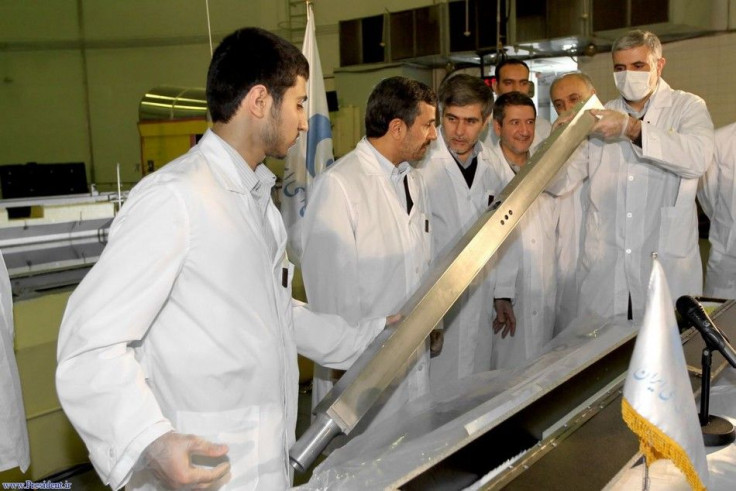IAEA Team Heads to Iran for Talks on Nuclear Program

(Reuters) - U.N. nuclear inspectors headed to Iran Sunday for talks aimed at getting Tehran to start addressing their mounting concerns that it may be seeking to develop atomic bombs.
We hope to have a couple of good and constructive days in Tehran, Herman Nackaerts, deputy director general of the U.N. International Atomic Energy Agency, said at Vienna airport as the five-member team prepared to depart.
The highest priority remains of course the possible military dimensions of Iran's nuclear program, he told reporters, making clear he wanted to see concrete results in the discussions with Iranian officials.
Western diplomats have played down any hopes of a major breakthrough in the Monday-Tuesday meeting, even though it comes just a few days after signs of a possible opening for diplomacy in the long-running nuclear dispute.
I'm still pessimistic that Iran will demonstrate the substantive cooperation necessary, one envoy said.
The outcome, after an inconclusive first round of discussions last month, could determine whether the international standoff over Iran's uranium enrichment program escalates further or offers scope to reduce tensions.
Iran denies Western allegations that it is seeking to develop nuclear weapons, but its refusal to curb uranium enrichment work, which can have both military and civilian purposes, and stonewalling of the IAEA's investigation have raised concerns.
Tensions have soared in recent months, with the United States and European Union adopting oil sanctions and Tehran threatening retaliation by closing the Strait of Hormuz, the main Gulf oil shipping lane.
But the United States and European Union expressed cautious optimism on Friday over prospects that Iran may be willing to engage major powers in new talks. They stressed that any resumed negotiations must be sustained and focus on the nuclear issue.
U.S. Secretary of State Hillary Clinton and European Union foreign policy chief Catherine Ashton said Iran's letter to Ashton last week might mark a step forward.
Iran's letter to Ashton - who handles contact with Iran on behalf of the United States, Britain, France, Russia, China and Germany - proposed resuming the talks and said Tehran would have new initiatives to bring to the table.
In these negotiations, we are looking for a way out of Iran's current nuclear issue so that both sides win, Iranian state television quoted Foreign Minister Ali Akbar Salehi as saying on Sunday.
TALKS ABOUT TALKS
The IAEA wants Iran to explain intelligence findings - detailed in an IAEA report in November - about research and development pointing to a nuclear weapons agenda, and grant access to sites, documents and people relevant to the inquiry.
We want to tackle all outstanding issues, Nackaerts said, adding however they were complex and it may take a while.
Iran has indicated readiness for the first time in three years to address the agency's questions but also repeatedly dismissed the allegations as baseless and forged, doing little to counter skepticism about its nuclear intentions.
Western capitals suspect Iran is trying to buy time by offering talks about talks while it accumulates higher-enriched uranium in a mountain bunker that may be largely invulnerable to air strikes, mooted by the United States and Israel as a last resort if diplomacy and sanctions fail.
Iran last month doubled enrichment output capacity at the Fordow underground facility near the Shi'ite Muslim holy city of Qom, Vienna-based diplomats have told Reuters.
The Islamic Republic says it is refining uranium for civilian energy and for a medical research reactor, not bombs.
Western diplomats say Iran may agree to make limited concessions to try to blunt growing international pressure on the major crude producer.
(Additional reporting by Zahra Hosseinian; Editing by Janet Lawrence)
© Copyright Thomson Reuters 2024. All rights reserved.





















